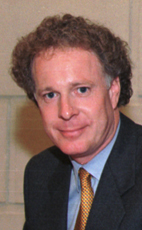Mr. Speaker, only a few days ago we lost one of the longest serving members of this place. Mr. Hees served with great distinction as a member of Parliament for 37 years.
Mr. Hees had a very distinguished career. He also had a full life, full of brightness and joy. He was kind enough to share his unlimited talents with Canadians.
Mr. Hees studied and graduated from the University of Toronto. He also studied at Cambridge in England. He was an athlete who played for the Toronto Argonauts and had the privilege of being on a Grey Cup winning team.
He served in the Canadian Armed Forces in the second world war as a brigade major in the Fifth Infantry Brigade. He was wounded and returned home in 1945. One of his good friends at the service in his honour mentioned a typical Hees story regarding his return to Canada. He came home, the dashing war hero with his arm in a sling, and enjoyed the attention he received everywhere he went, at receptions and elsewhere. The friend told the story of one evening Mr. Hees returned home after one those receptions with the wrong arm in the sling.
Mr. Hees then went on to take an interest in public life. He ran unsuccessfully for the House of Commons in 1945, but was elected in 1950. He subsequently became president of the Progressive Conservative Party of Canada in the years that preceded the election of the Diefenbaker minority government in 1957, and the majority government in 1958.
In the Diefenbaker government he was appointed minister of transport and served with great distinction in that portfolio. He went on to the department of trade and commerce and is remembered with a great deal of fondness by those who worked with him at that time.
Mr. Hees was an unabashed cheerleader of Canada. He was a supporter of his officials and his department and could be a fantastic person for whom to work. Those people who worked with him in the department at the time remember the presence of this minister who demonstrated that, yes, a minister can make a substantial difference within a single department.
Under his leadership in trade and commerce, the department went on to promote trade with other countries and it did this with an unprecedented level of success.
Mr. Hees left politics in 1963. This was a difficult time, as some members will remember, for the government of Mr. Diefenbaker. Mr. Hees, at the time, chose to retire from active politics. He went
on to become president of the Montreal Stock Exchange. He, who had been from Toronto, was now living in Montreal. He also did very well in that responsibility.
He returned to active politics in 1965 and was re-elected. He then went on to serve until he was again named to cabinet in 1984 in the government of Brian Mulroney. This time he was appointed minister of veterans affairs. Of all the accomplishments of his life, at no point did Mr. Hees distinguish himself more than in that portfolio. To this day people who work in that department, who I know and see from time to time, and veterans, remember him very fondly.
Mr. Speaker, you may remember the VIP program that he extended to 10,000 veterans at the time. Mr. Hees, at every opportunity, used to say to people when he was minister of veterans affairs, how every Canadian was a special person. He would pause and remind us that those who had served in those extraordinary circumstances were, in his mind, exceptionally important to the country. He is still very fondly remembered for what he did for each and every one of them.
Mr. Hees served until 1988 when he decided not to run again and was named an ambassador. He is also remembered fondly for some of the work he did in that capacity.
I have a personal story to tell from the first cabinet meeting that I ever attended. I do not think I am sharing any great secret here. As we sat around the table on that very first day, the prime minister reminded us that two people there, who because of their ages could not get into the Senate. Of course I was under 30 years old and Mr. Hees was over 75. Mr. Hees' reply was: "At least in Charest's case it can be fixed".
Mr. Hees also had a great deal of enthusiasm for his country and his fellow citizens. What impressed me the most about him was how at ease he was with himself. Here was a man who had a good sense of who he was and of the experiences of his life. He was extremely generous and shared a great deal. His wife, Mabel, also shared his political life. Mibs was her nickname. She was an extraordinary person. I want to extend to his three daughters and, as well, to all those Canadians who remember Mr. Hees our sincere condolences.
Mr. Hees was an alumnus of the Royal Military College and-something I would mention in passing as being of interest to the people of Quebec-did battle with George Drew here in this House to get the Collège militaire royal de Saint-Jean created.
I recall that we found, in researching the history of the creation of that military college, a House of Commons discussion between George Hees and Léon Balcer-the former MP for Trois-Rivières, I might point out-in which Mr. Hees defended the idea of creating a royal military college in Quebec. He felt, based on his experience, that this was extremely important. This was a man with a profound sense of what Canada was, and we will miss him.
To his family, all his friends and those who have had the pleasure of working with Mr. Hees, our sincere condolences.

